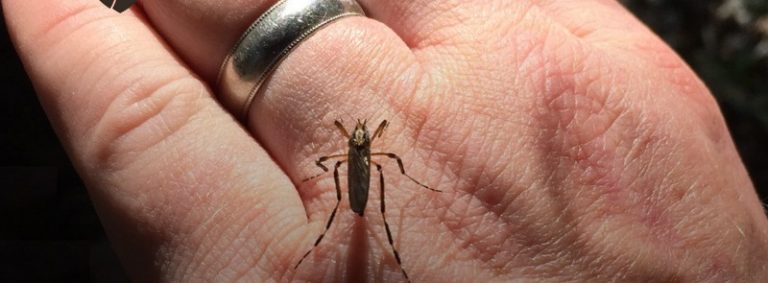Last year most deer hunters hadn’t heard of the Zika virus. Now the World Health Organization considers it an international public health emergency, and the mosquitos that carry it are found in most states that are home to whitetails. Of the confirmed cases of Zika in the United States at this time, only a few cases in Florida were acquired locally rather than while traveling outside the country, but new states are expected to appear as the disease spreads. In addition to Zika, we also need to be cognizant of West Nile Virus and Dengue.
 The best ways to protect yourself while hunting is to cover all exposed skin and use repellent. Gloves, headnets and facemasks can all help, and Thermacells (seen in the photo) and spray-on repellents can be your best friends.
The best ways to protect yourself while hunting is to cover all exposed skin and use repellent. Gloves, headnets and facemasks can all help, and Thermacells (seen in the photo) and spray-on repellents can be your best friends.
If those diseases aren’t bad enough, we’re also susceptible to numerous others carried by ticks. Lyme disease is now the most common illness transmitted by bloodsucking bugs in the United States, and it’s a distinct minority of hunters who don’t get at least one tick bite annually. Lyme disease continues to spread in the United States, and it’s carried by black-legged (aka “deer ticks”) and western black-legged ticks. Unfortunately, in addition to Lyme these ticks can also carry Anaplasmosis and Ehrlichiosis, and the black-legged tick can also carry Babesiosis. You don’t want any tick-born disease, but Babesiosis can be one of the worst. It can be similar to Malaria, and it’s most common in the Northeast and upper Midwest. Ehrlichiosis is most common in the Southeast and South central United States.
A final disease is Rocky Mountain Spotted Fever, and it’s carried by the American dog tick, brown dog tick, and Rocky Mountain wood tick. Dog ticks are present nearly everywhere whitetails live. This disease can be fatal, and despite its name the majority of cases occur in Arkansas, Missouri, North Carolina, Oklahoma and Tennessee. Collectively, these states are home to over 2.5 million hunters, so there is a lot of potential for tick bites and disease.
The best way to protect yourself while hunting is to treat your clothes with permethrin and spray repellent on any exposed skin. Once back to camp, strip down and check for ticks, and pay particular attention to your groin, armpits, and the back of your knees. If you find a tick remove it with tweezers and keep it for your doctor if a rash develops at the site or you get an unexpected illness.
Don’t let these bloodsuckers keep you from enjoying the woods this fall, but be cognizant of them and protect yourself before heading afield. The only blood you want to be concerned with is what’s in the trail leading to your prized venison!

